Description
Boseong Jungjak Hongcha (보성군 중작 홍차) is an organic black tea from the Choi family plantation. Located in the famous Boseong County of South Jeolla Province, they produce some classic teas that all have a distinctive ‘Korean’ taste and unique characters. The spring Jungjak (중작) grade is plucked in early May and is the third flush. This tea has full organic certification, was picked in 2017 and is sourced by us directly from the Choi family.
You may be interested in other teas we currently offer from the Choi Family Garden.
We visited the Choi family plantation in early spring of 2017. While still being early for the first harvest of the year we were able to see their beautiful plantation and facilities. The family has owned this plantation for 3 generations and the tea making knowledge passes down from one generation to the next. Sampling some of the teas, our particular favourite was a traditional fermented tea, or Hwangcha, handmade by Mr Choi’s grandmother according to her secret recipe. We were equally impressed by the classic green and black teas offered by the Choi family plantation. They take great care in producing their organic teas and this results in some fantastic teas that showcase unusual traditional Korean tea flavours.

Korean teas are distinguished by having a clear classification system of flushes. The first flush Ujeon (우전) is the most prized one, which is the ‘pre-rain’ picking of the tea leaves. This is followed by Sejak (세작) ‘thin sparrow’, Jungjak (중작) ‘medium sparrow’ and Daejak (대작) ‘big sparrow’ flushes. These names refer to the shape and size of the leaves and their resemblance to sparrow tongues. The earlier the harvest, the more expensive the tea is. Earlier harvests also have more intense characteristics and heavily feature dominant green, savoury and umami flavours.
The types of tea produced in South Korea broadly follow the types everyone is used to from other countries, however they do have interesting classification and a distinct terminology. We tend to follow the Korean terminology at Curious Tea in order to accurately describe the type of tea on offer. Broadly speaking, there are four types of tea produced. Nokcha (녹차) green tea is the most common type and is an unoxidised green tea. Hwangcha (황차) ‘yellow tea’ is a partially oxidised tea that is unique to Korea. It is not the same a either yellow tea from China or oolong tea, but rather is a wide range of partially oxidised and sometimes partially fermented teas from Korea. Each tea master will have their own version of Hwangcha and their own unique method of production so it is extremely difficult to exactly define this type of tea. Hongcha (홍차) ‘red tea’ is a fully oxidised tea that is closest Korea produces to a ‘traditional’ black tea. Finally there is the very rare Tteokcha (떡차) ‘cake tea’ and Doncha (돈차) ‘money tea’ that are both post fermented shaped dark teas akin to pu-erh.
This Boseong Jungjak Hongcha is a black tea that has small black twisted leaves with a light malty aroma. The liquor has a light amber colour. The character is very light, slightly malty, creamy and fruity. It has a wonderfully smooth yet satisfying flavour with notes of raisins, menthol and eucalyptus. There is no astringency, only a slightly tart aftertaste. Overall a very pleasant light black tea that is rather unique.
It is best brewed at 90c for 2-3 minutes and can be re-brewed multiple times.
Boseong Jungjak Hongcha black tea was first featured in our February 2018 Curious Tea Subscription Boxes.

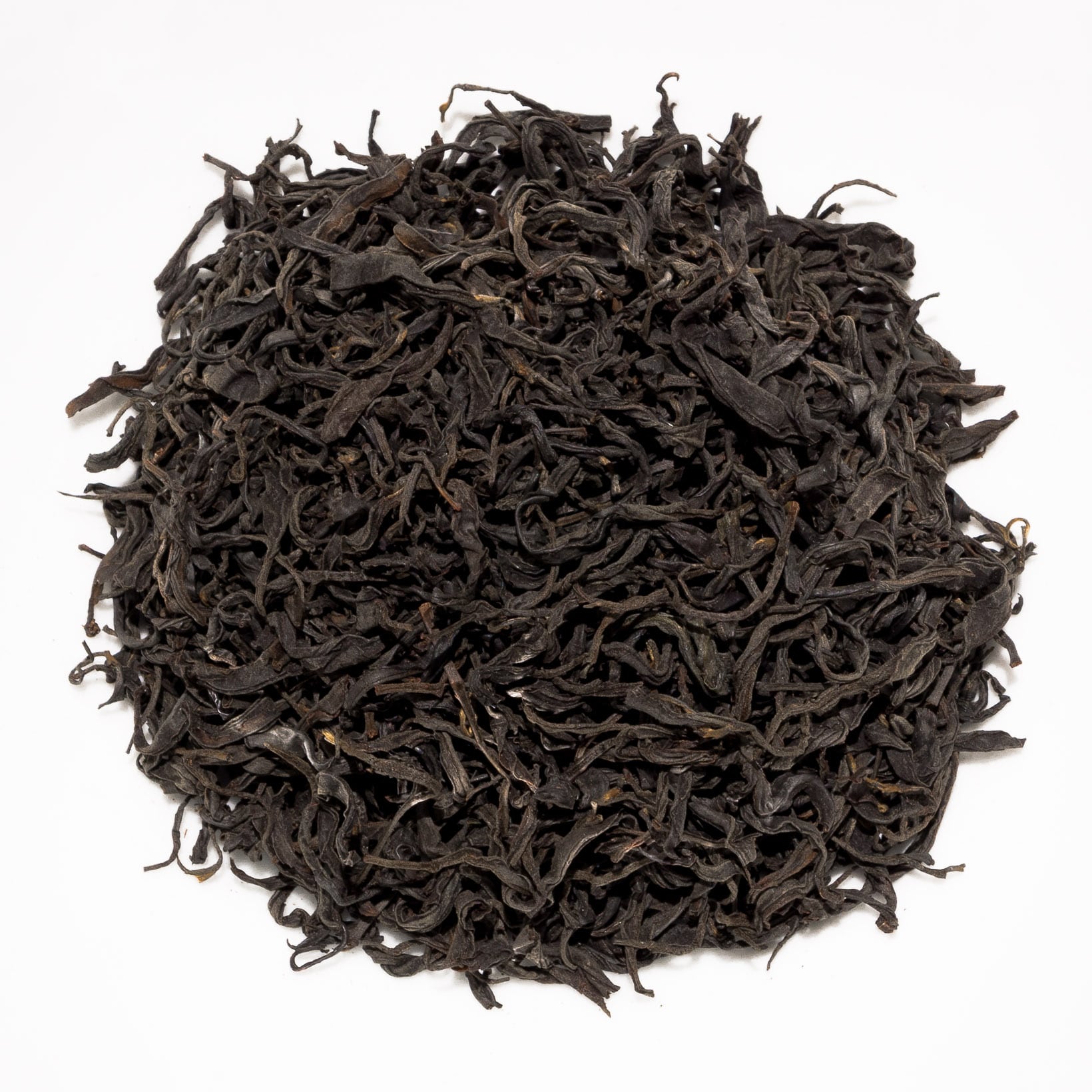
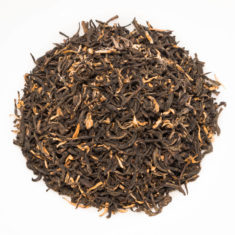 Indian Black
Indian Black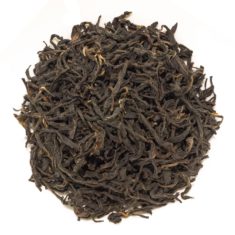 Georgian Black
Georgian Black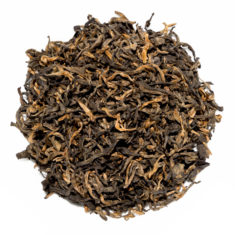 Indian Oolong
Indian Oolong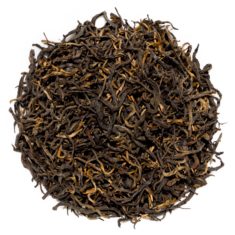 Chinese Black
Chinese Black